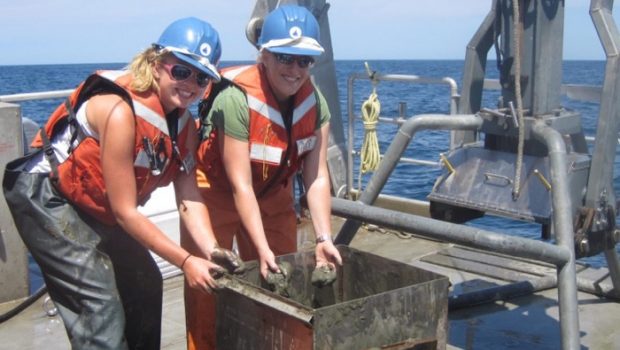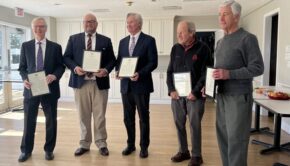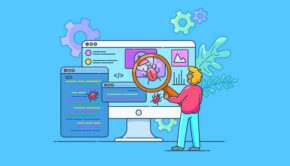Spotlight on Shelley Brown
Published on February 11th, 2022
On this, the International Day of Women and Girls in Science, US Sailing had a brief chat with Shelley Brown about what inspired her to get involved in the sciences and why it’s so important for women and girls to pursue and explore STEM.
Interested in the sciences from a young age, Shelley Brown is a native Rhode Islander who has spent a lifetime sailing with family from Bar Harbor, ME to Long Island, NY. She is the Director for Sailors for the Sea Powered by Oceana, the world’s leading ocean conservation organization that engages, educates and activates the boating community toward restoring ocean health.
Brown has a doctoral degree from the University of Rhode Island with a focus on microbial ecology in coastal marine environments. She is the former program director of the Block Island Maritime Institute (BIMI), was a member of the education team on the Hudson River Sloop Clearwater and has served as a visiting scientist at the Environmental Protection Agency (EPA), Atlantic Ecology Division.
What was your favorite subject in school and why?
I enjoyed all my science classes growing up. From ecology to astronomy to immunology, I was always eager to learn more. Since I was a little girl, I loved being out in nature, particularly close to or on the ocean. Science helped me better understand the world around us, how we as humans fit in and how we can make a positive or negative impact on our natural surroundings.
When was the first time you became actively involved in STEM? Do you recall a specific project or initiative?
Pursing my PhD in molecular biology was the first time I became actively involved in STEM. I studied the impact human activities have on microbes living in coastal marine environments. I remember my first field sampling trip in Narragansett Bay and the excitement of trying to figure out what was happening in my own backyard using a variety of scientific tools – I felt like a detective pulling all the data together.
How have your beliefs, motivations and aspirations changed over time? When did a career in STEM become a priority or choice?
During my PhD, I had the opportunity to develop STEM outreach curriculum for children and adults based on my research. It was then that I realized the importance of clearly communicating science to the public. If the public doesn’t understand the research or science, how can we ask them to care or get involved on an issue. A lightbulb went off and I knew once I finished my PhD, I wanted to pivot out of research and pursue a career that was focused on communicating about issues impacting our oceans.
What is the coolest thing about your work/research?
There is still so much unknown about the ocean! I love continuing to learn about our marine world and figuring out ways to communicate about the issues impacting our oceans that will resonate with a variety of people. Some days I’m creating a hands-on activity for youth sailors so they can learn about the spread of invasive species or the impact of climate change.
Other days I’m figuring out how we can rally boaters to support a local policy that will reduce plastic pollution. I think the coolest thing about my work is seeing people understand the science behind an issue and wanting to be a part of the solution. How could you contribute your wisdom, expertise, or ideas to empower other women and girls interested in your field?
When I decided to leave research, and follow a career in environmental education and communications, I did not know many people who had left academia. At the time it felt like a leap of faith. I hope that I can be a role model or mentor for other women and girls interested in pursuing a profession in science and communications or wanting to change their career path. It may be cliché to say, but my advice would be to follow your passion.
Source: US Sailing









 We’ll keep your information safe.
We’ll keep your information safe.